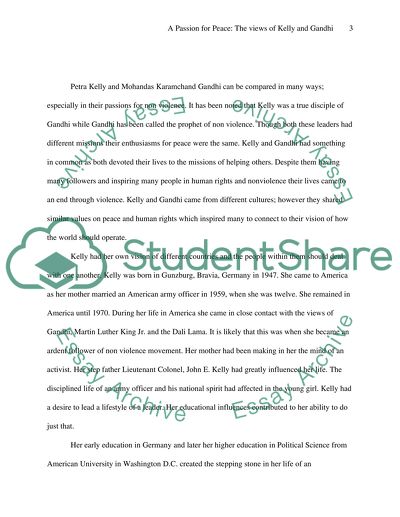Cite this document
(“A Passion for Peace: The Views of Kelly and Gandhi Essay”, n.d.)
Retrieved from https://studentshare.org/english/1450032-a-passion-for-peace-the-views-of-kelly-and-gandhi
Retrieved from https://studentshare.org/english/1450032-a-passion-for-peace-the-views-of-kelly-and-gandhi
(A Passion for Peace: The Views of Kelly and Gandhi Essay)
https://studentshare.org/english/1450032-a-passion-for-peace-the-views-of-kelly-and-gandhi.
https://studentshare.org/english/1450032-a-passion-for-peace-the-views-of-kelly-and-gandhi.
“A Passion for Peace: The Views of Kelly and Gandhi Essay”, n.d. https://studentshare.org/english/1450032-a-passion-for-peace-the-views-of-kelly-and-gandhi.


